Life in a secluded Georgian-Ossetian village of Velebi
Velebi – hidden Georgian-Ossetian village
If you look for Mount Dunhvisi without a map, you will definitely get lost.
At least that’s what happened to us.
My friends and I stumbled upon photos taken from a mountain with a height of 1,640 meters on the Internet and decided to devote a weekend towards ascending to Dankhvisi. But the path to the picturesque panorama turned out to be not as easy as we first thought: the road strayed, constantly dividing and confronting us with a choice – to the left or to the right? And somewhere our choice turned out to be wrong because we arrived in a completely different place.
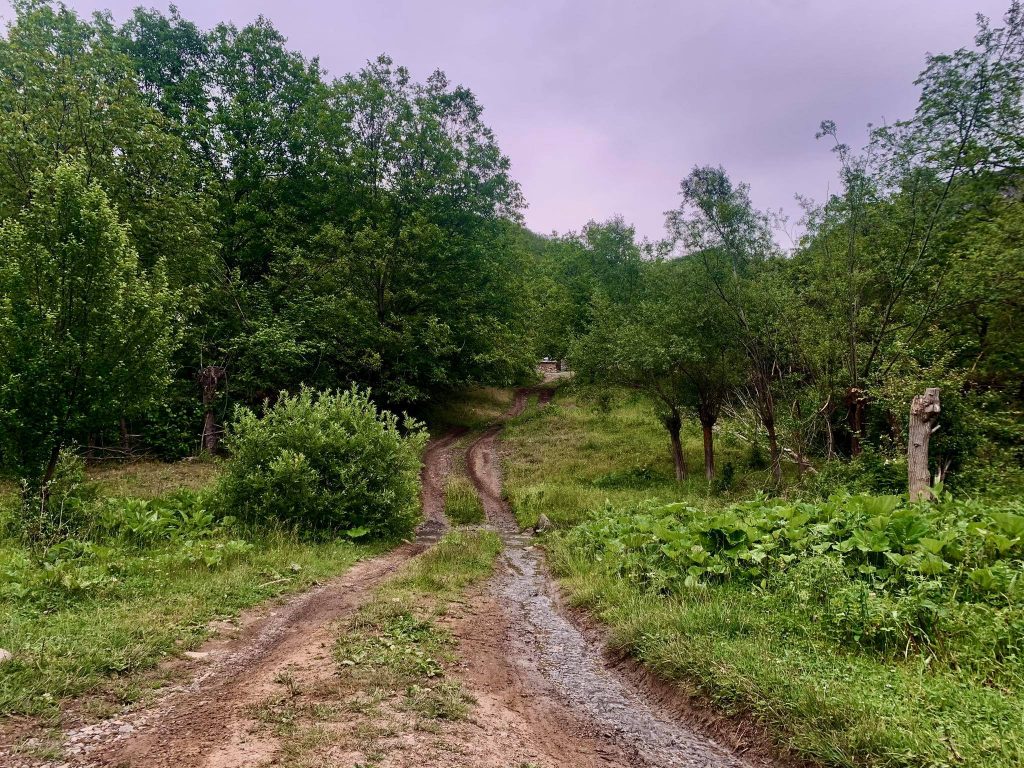
– Who are you? , – asked a man, as soon as we, looking around, got out of the car.
– We were trying to get to the observation deck on Dunhvisi, – we answered.
– Oh, you got lost , – the man laughed. – Well, who else will come here besides the lost tourists.
– What is this village? , we asked.
– A village that loves guests! – replied the man, leaving the garden. – And since you have arrived, we need to receive you well. Just wait a bit, I have a little business here.
The man picked up a shovel from the ground, walked over to a stream flowing along the road and easily changed its course, directing it into the garden.
It turned out that the village is called Velebi, it is only 12 kilometers from the city of Gori, although it feels like the end of the world there.
-
Georgian-Ossetian conflict. Short story
South Ossetia was an autonomous region of Georgia during Soviet times.
The modern history of the Georgian-South Ossetian conflict began in the late 1980s after the collapse of the Soviet Union. South Ossetia wanted independence, and in response, Georgia canceled its status as an autonomous region and annexed South Ossetia to the Shida Kartli region.
The first armed resistance and the first casualties were reported in November-December 1989. Active hostilities were fought in 1991-1992 and ended with the signing of the Dagomysk agreement in 1992, obliging the parties to cease fire and withdraw armed formations from the conflict zone. The Russian Federation was also instructed to withdraw its military units from the territory of South Ossetia.
During the armed conflict, according to various sources, up to 10 thousand people were killed on all sides, and up to 100 thousand people left their homes as refugees and internally displaced persons.
The Joint Control Commission and the tripartite Joint Peacekeeping Force were tasked with overseeing the implementation of the peace agreement. The latter, in the Georgian, South Ossetian and Russian battalions, was under the command of Russian troops.
The conflict between Georgia and South Ossetia until August 2008 was considered “frozen”. After a five-day war between Russia and Georgia in 2008, Russia recognized South Ossetia as an independent state. Diplomatic relations between Moscow and Tbilisi were severed.
South Ossetia continues to live as an independent republic, recognized only by Russia and some other third world countries. Most of the international community recognizes it as a Russian-occupied region of Georgia.
The Dagomys Treaty practically lost its force after the August 2008 war and Russia’s recognition of the independence of South Ossetia.
According to the 2014 census of Georgia, 12 people live in the village of Velebi with an area of four hectares.
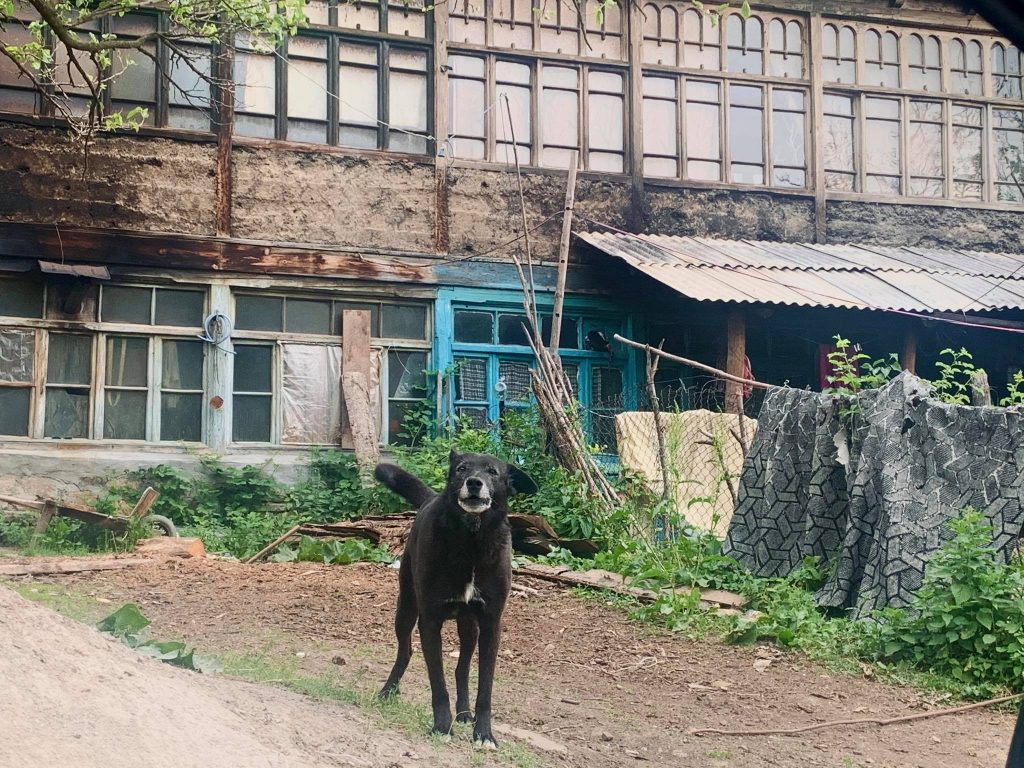
Local residents live off agriculture – each house has a small land plot. On the day we arrived, it started raining, the stream was full, and now the villagers hope that they will have enough water for irrigation.
Merab is 52 years old, he was born and raised in this village. Merab’s parents were Ossetians, but since there was no school in the village, he was taken to the neighboring village of Ateni for secondary education. He also learned Georgian there.
“All these people who tell nonsense about Georgians and Ossetians need to be brought here. When you miss your interlocutor, it doesn’t matter at all who they will be – an Ossetian or a Georgian”.
- The 2008 war over South Ossetia: How it all happened
- “We played football with Ossetians in that field” a report from a divided village
- 10 years behind barbed wire — stories and photos from the Georgian–Ossetian conflict zone
Merab recalls the old days with pleasure, we don’t even need to ask questions, he willingly tells everything himself:
“God grant health to the woman who taught me the Georgian language so well. When I finished school, I started working as a driver in Gori. Back then, drivers were making good money. I then lived in a rented apartment and sometimes earned a month’s rent per day of work. Then I fell in love with a woman two years older than me and married her”.
Merab’s wife is Georgian. Having intermarried with the Georgians, Merab became friends with them. But he could not imagine that one day he would have to change his Ossetian surname to a Georgian one.
“I would not have thought that someday it would be necessary to answer whether I am Ossetian or Georgian. I just loved my wife and all her relatives. But then everything went bad, I started having problems because of my last name. Unlike the others, I didn’t think of going anywhere from here. Then I just changed my surname and many others did too”, Merab said.
For more than 25 years, Merab has been living under the name of Khachirishvili.
His friends and neighbors left a long time ago – both from the village and from the country but the life of Merab and several other people turned out differently and they remained in their native village.
Merab’s one-storey house is fenced along the perimeter, with newly erected walls visible nearby. It looks like a renovation is in progress and the owner is planning to make an extension.
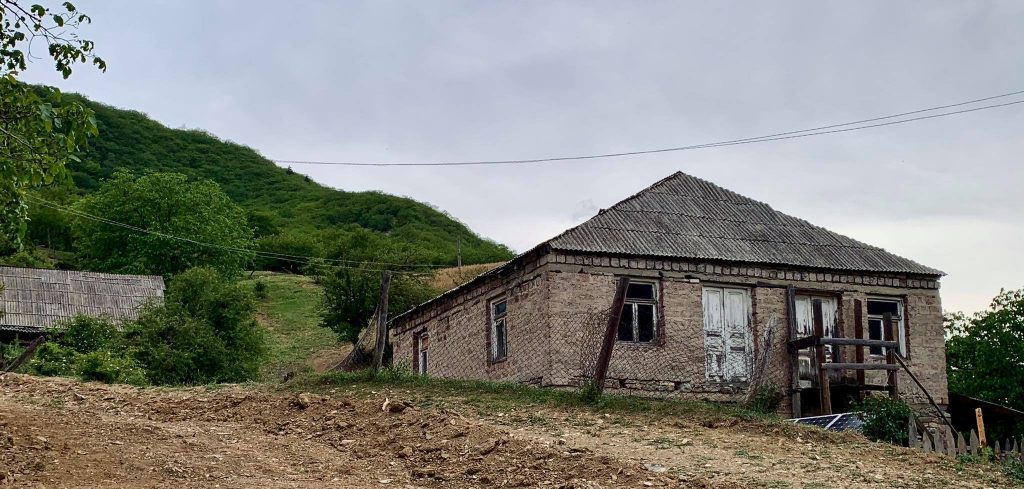
“Yesterday I organized a small feast here – what other entertainment do we have in the village? I lit a fire, fried a barbecue, invited neighbors and we all sat down. When I need help with construction, they will definitely come to the rescue. Here we are like in a family – all together in sorrow and in joy.
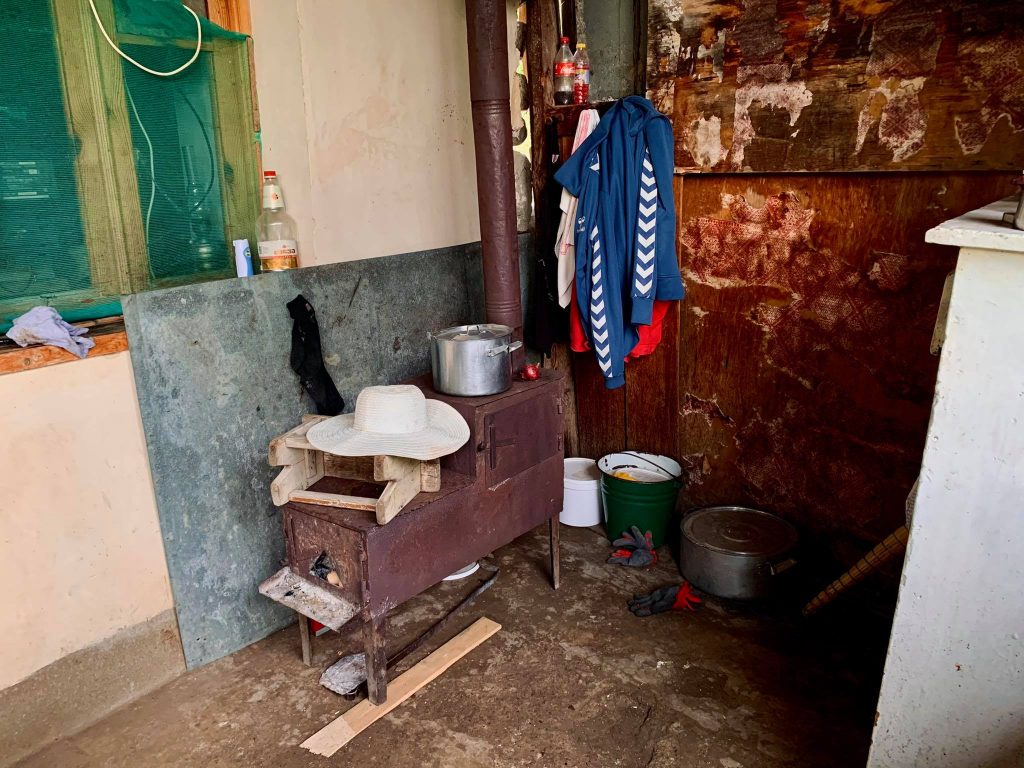
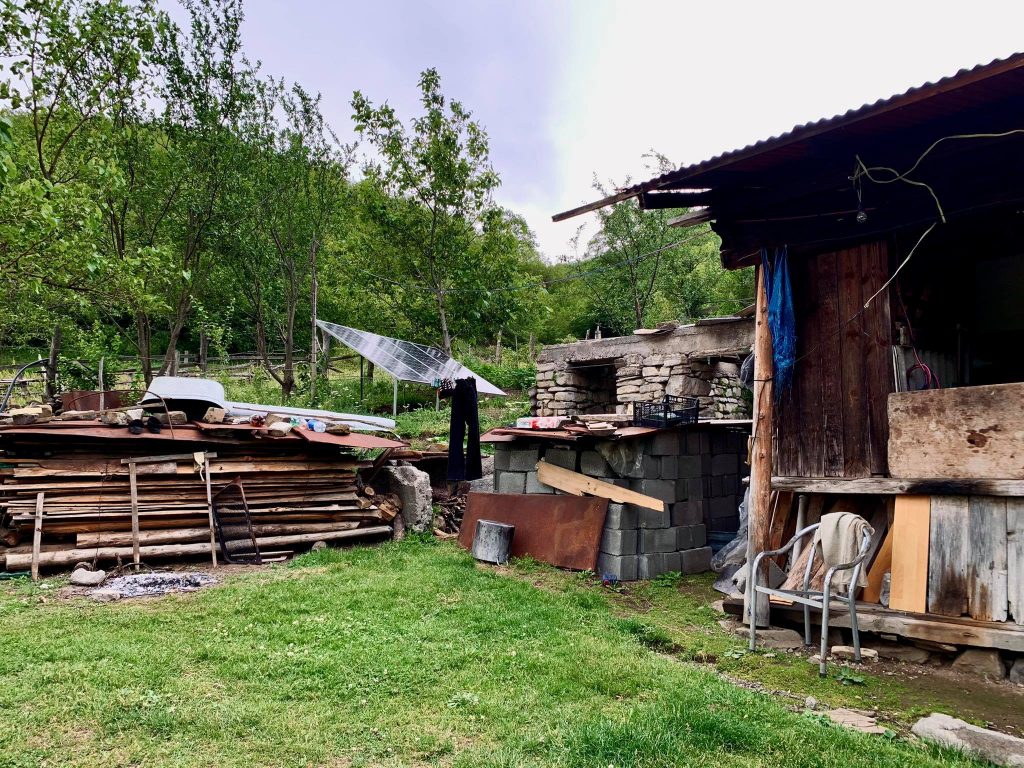
Merab is renovating a house for his grandchildren. He thinks he should give it to them in good condition.
“I have two grandchildren, the eldest will go to school this year, the youngest is three years old. They live in Gori. They love chicken very much. And here I am looking after 45 chicken for them. When the children arrive, they give out names to the chickens and play with them. Now it will soon become hot in the city, and they will come here to live with me. So I want to arrange this place well while I am alive so that after my death they would also want to come”.
Merab’s wife also lives in Gori most of the time – she helps the children to raise their grandchildren.
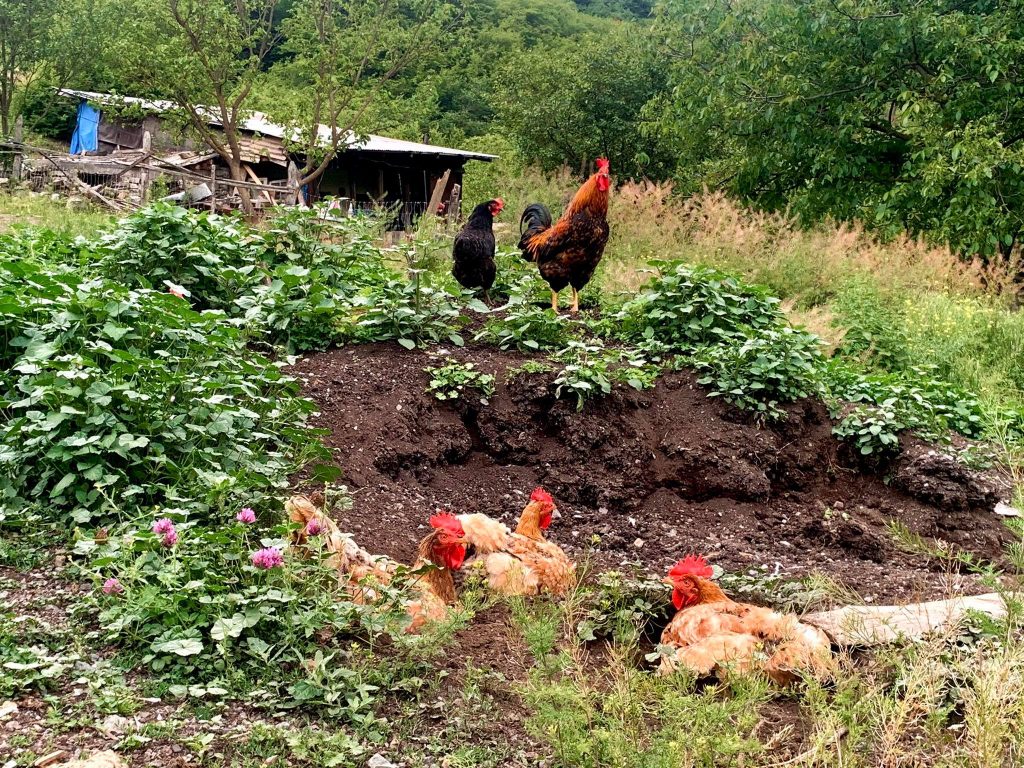
Local residents say that the village was completely different before the 90s. Many families lived in Velebi, most of them were mixed Georgian-Ossetian. In the 1990s, after the first phase of the Georgian-Ossetian conflict, people began to disperse.
“I remember that our village was also called Ossetian. And when the riots began, the local Ossetians gradually left – some for Vladikavkaz, some for Russia. Some bought apartments in Gori and now live there. Later, Georgians began to leave because of poverty and unemployment. So the area was deserted”, said 74-year-old Dali, a neighbor of Merab.
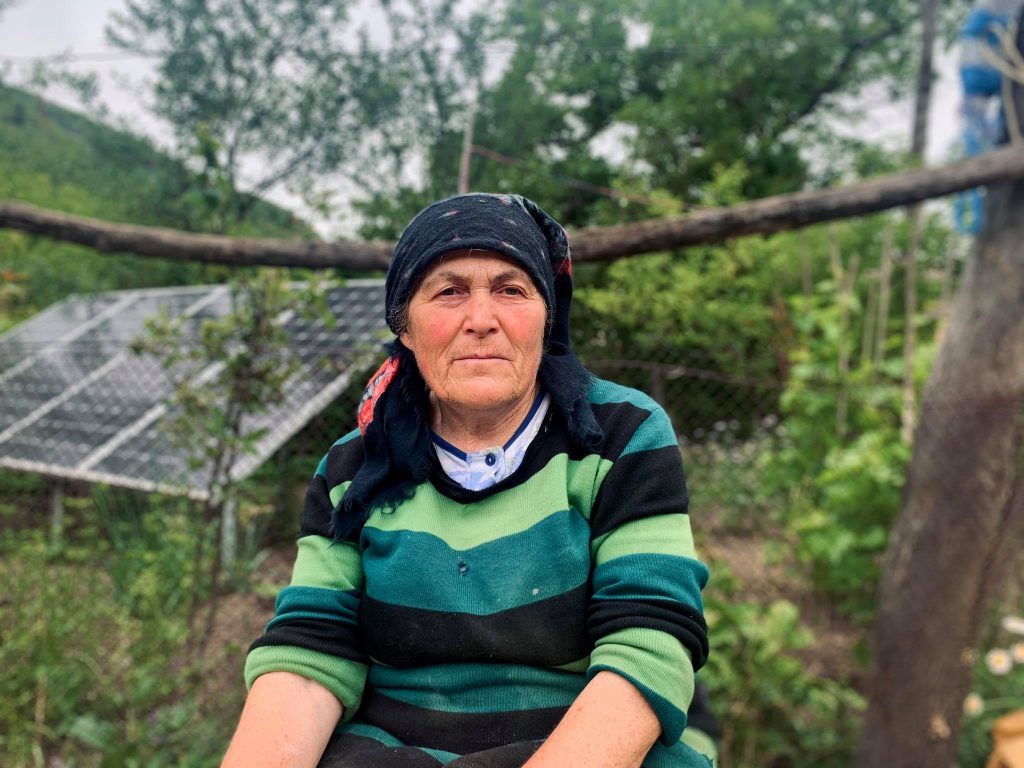
The houses of Dali and Merab are on opposite sides of the street. There are two more houses nearby, but they are empty.
Dali lives with his grandson, he is 30 years old. The grandson helps to manage the household, repairs harvesting equipment with his own hands.
“There is a village higher up here, I was born there. Then I met my husband, he was also Ossetian, his surname was Kumsishvili. I moved here to live with him after I got married. My husband died a few years ago, and my grandson moved in with me. It is difficult and scary to live alone here – you saw our road. If you need something, you won’t be able to get out of the village”, Dali says.
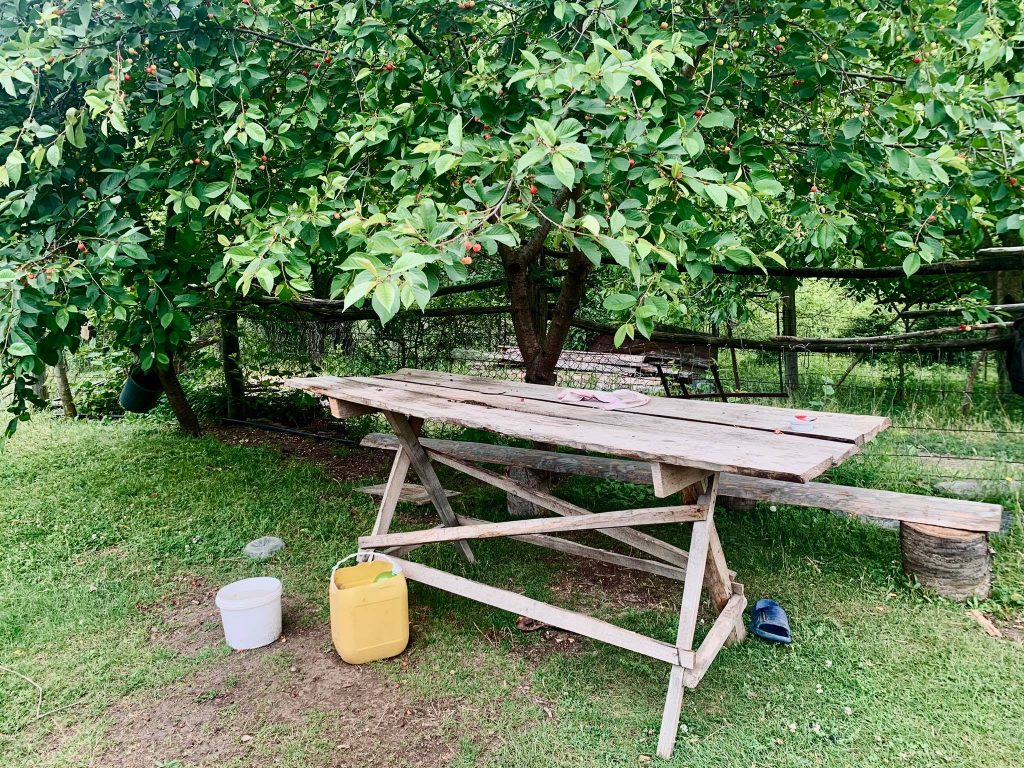
The village of Velebi borders on Alketi, Uriuli and Gvedreti.
According to the locals, now no one lives in these villages, and the houses look so abandoned that it is hard to believe that people once lived here.
“Ossetians also lived there. When the riots began in the 90s, people left, but I thought that they would come back, but no, they never came back. Only the old people remain. There is not a single child here, not a single young family”, says Dali.
Dali is also an ethnic Ossetian and she also changed her surname to Georgian at one time. In the 90s, Georgian friends advised her to do it.
“The situation was tense, Ossetians were oppressed. And I was friends with Georgians – together we collected dogwood and took it for sale in Tbilisi or Kutaisi. They were kind women, real friends. So they advised me to change my surname”, Dali recalls.
Dali has two children, both are married to ethnic Georgians. They live in Gori and rarely come to Velebi.
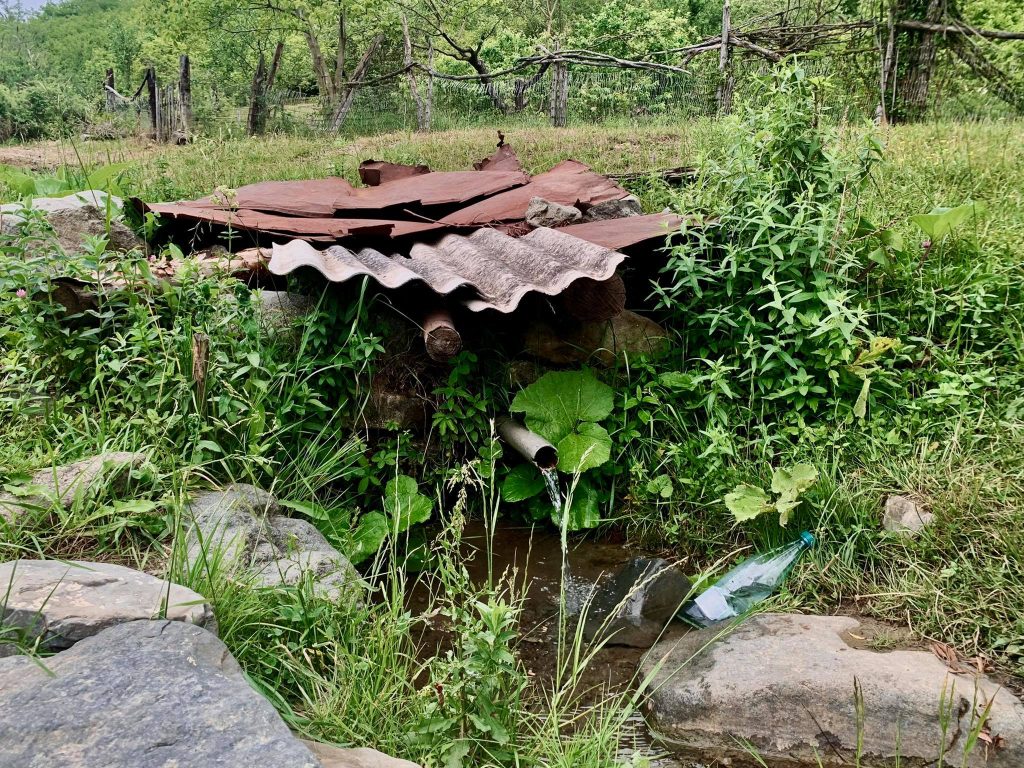
“They work, they have their own affairs, what should they do here?! I have a small garden, I manage it myself. I get a pension and social security, what do I spend my money on here? We were given the status of highlands and we have a discount on electricity”, explains Dali.
There is no natural gas in the village. Local residents are starting to stockpile firewood now, in the summer. There is no shop or pharmacy in the vicinity. It is customary to buy food and things here in reserve in the city, in case of urgent need – all hope is for several local car owners.
“My grandson has a car, Merab also has one. Another one of ours had a car, but for some reason, we haven’t seen him lately. But be that is enough for us. Most often, Merab goes to Gori – he works there as a male hairdresser, and on the way back he can pick up whatever I ask him for”, Dali tells us.
There is no mobile communication in the village, but local residents do not care.
When I said that I was going to write about their village, in response they smiled: “We will not see this, unless you come back and read us what you wrote”.
Saying goodbye, I asked to teach me some Ossetian phrase. “Uazag rahizut midama!” – said Merab, looking up while washing the dishes.
On the way back, when my lethargic phone woke up, I entered this phrase into a search engine and found the meaning of these words: “Ouazag rahizut midama” means “Guest from God”.


















